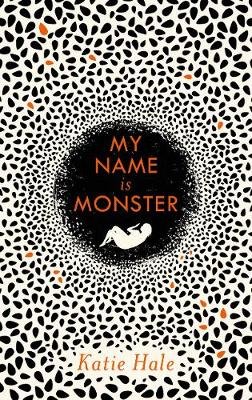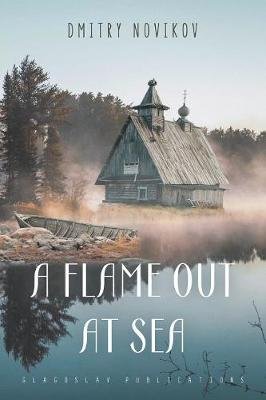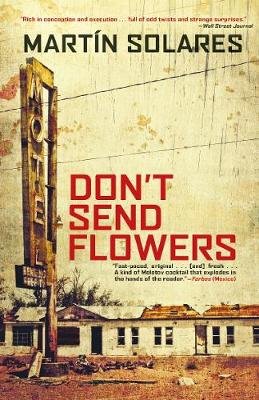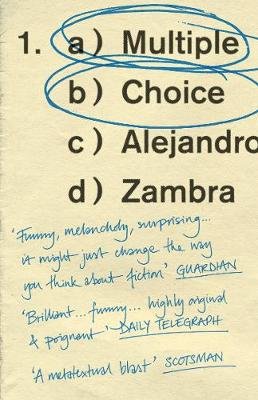
Katie Hale’s My Name is Monster (pub. Canongate) is a new debut novel that draws inspiration from Frankenstein and Robinson Crusoe. After society has been devastated by ‘the War’ and ‘the Sickness’, a woman named Monster (who was working in an Arctic seed vault) makes her way through Scotland and northern England until she comes to a city where she can rest. She believes she’s alone, until she finds a fellow survivor, a young girl. The woman changes her name to Mother, and calls the girl Monster. Told in two halves, by two Monsters with different outlooks, Hale’s novel chronicles a search for survival and asks what comes after. There’s an evocative sense of the uncertain world, and of human hopes and fears in the face of an indifferent reality.

A Flame Out at Sea by Dmitry Novikov (tr. Christopher Culver, pub. Glagoslav) is set largely in the area around the White Sea in northwestern Russia. It switches between multiple timelines, focusing mainly on two characters: Grisha (as a child in the 1970s and later in the 2000s) and his grandfather Fyodor (seen mainly in the early 20th century). Over the course of the novel, Grisham tries to come to terms with the past as he uncovers a dark secret of his grandfather’s. Novikov (in Culver’s translation) combines vivid depictions of the landscape and sea with human drama; the result is an enjoyable piece of work that lingers in my mind.

I’ve also been reading more books for Spanish and Portuguese Lit Month. Don’t Send Flowers by the Mexican writer Martín Solares (tr. Heather Cleary, pub. Grove Press UK) begins as a typical crime novel, with a retired detective hired to find a business man’s daughter, thought to have been kidnapped by a cartel. For a while, Don’t Send Flowers carries on looking like a typical crime novel with a nicely twisty plot… Then the novel opens out, revealing a world where nothing is quite as it seems. The prose is brisk, the pages turn – and turn.

From Mexico to Chile: Alejandro Zambra’s Multiple Choice (tr. Megan McDowell, pub. Granta) is a novel structured after the Chilean university entrance test. So, for example, you have a section of sentences with missing words (and options for completing them), and one with groups of sentences to be arranged in the best order. With this format, Zambra offers a series of vignettes – even short stories by the end – with multiple interpretations, or versions, layered on top of each other.
 Chile, 1985: as the neighbourhood gathers to shelter from an earthquake, a nine-year-old boy strikes up a sort of friendship with Claudia, the twelve-year-old niece of his neighbour Raúl. Claudia asks the boy to keep an eye on her uncle, and so he does – soon discovering that Raúl has frequent rendezvous with a mysterious woman. But no sooner has the boy prepared to reveal all to Claudia than she relieves him of his duties, and moves away.
Chile, 1985: as the neighbourhood gathers to shelter from an earthquake, a nine-year-old boy strikes up a sort of friendship with Claudia, the twelve-year-old niece of his neighbour Raúl. Claudia asks the boy to keep an eye on her uncle, and so he does – soon discovering that Raúl has frequent rendezvous with a mysterious woman. But no sooner has the boy prepared to reveal all to Claudia than she relieves him of his duties, and moves away. Exposure is the story (translated from the Hebrew by Mitch Ginsburg) of two unnamed Arab citizens of Israel, both living in Jerusalem. One is a successful lawyer, who has made his wealth working on behalf of resident Arabs who are not citizens; his status gives him an informal, but valuable authority:
Exposure is the story (translated from the Hebrew by Mitch Ginsburg) of two unnamed Arab citizens of Israel, both living in Jerusalem. One is a successful lawyer, who has made his wealth working on behalf of resident Arabs who are not citizens; his status gives him an informal, but valuable authority:
Recent Comments